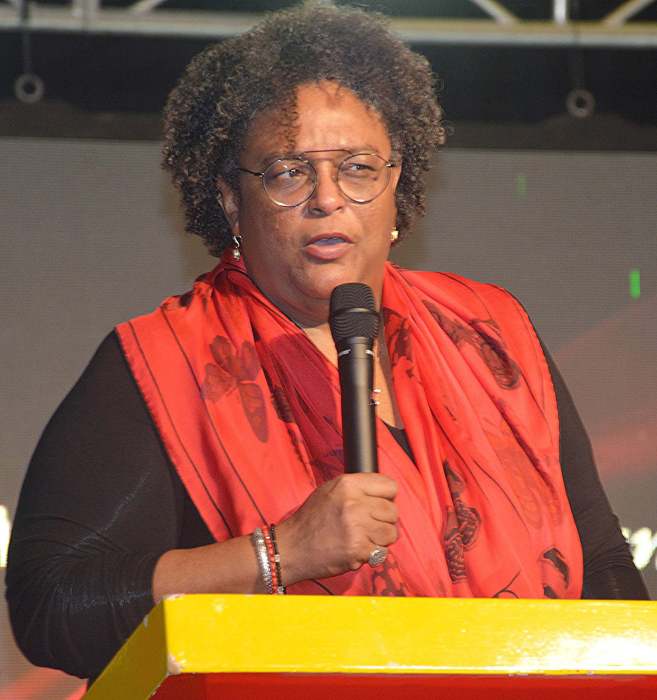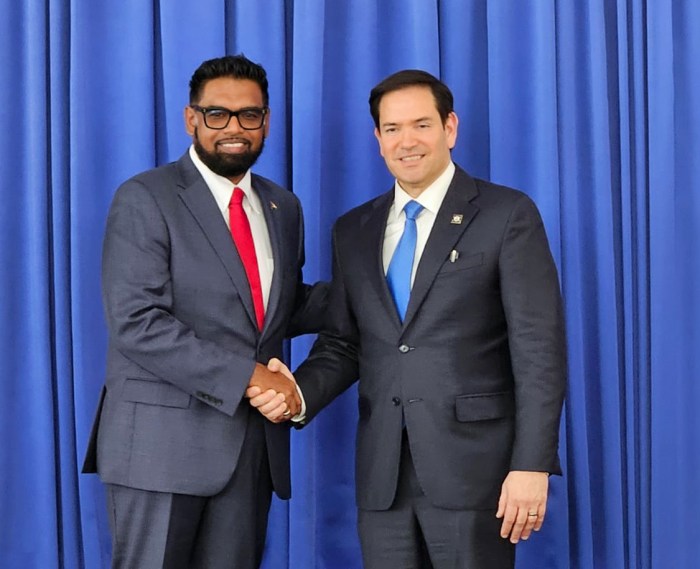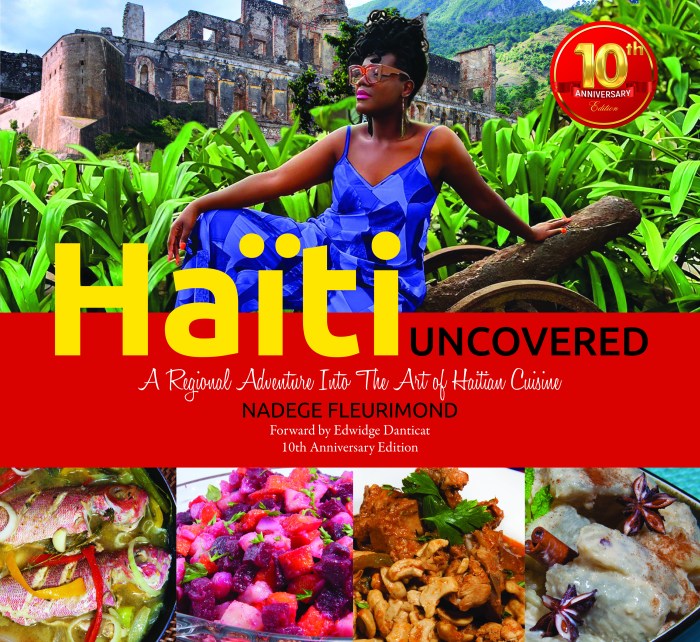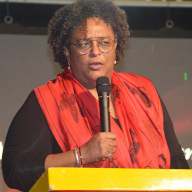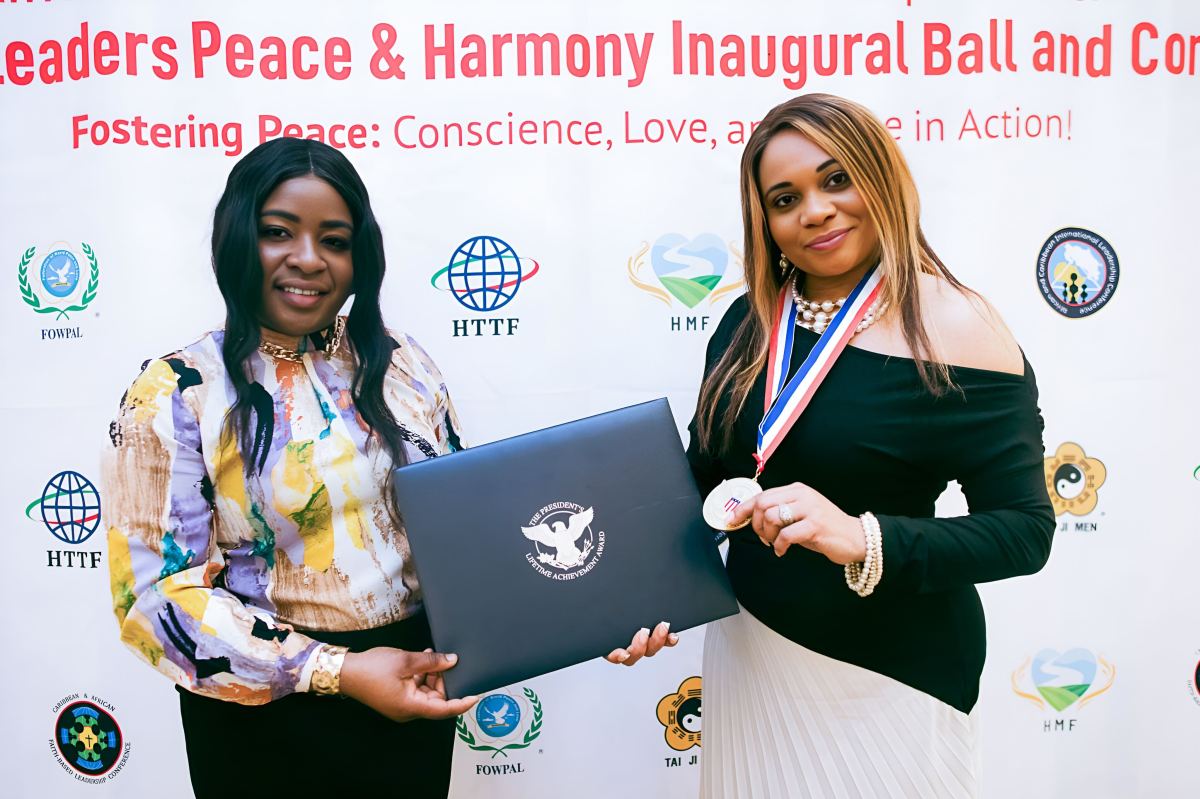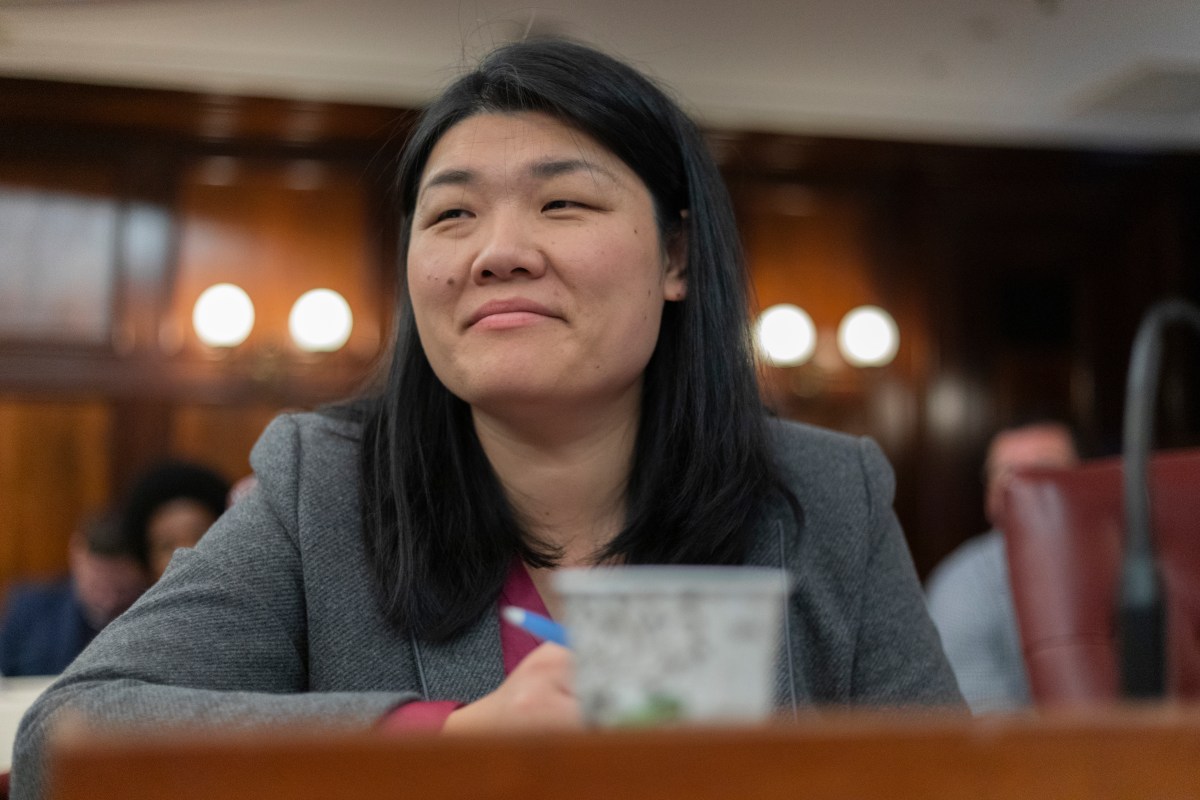Guyana President Donald Ramator said that the International Monetary Fund, (IMF) and the World Bank have given Guyana high marks on its economy, at a time when the U.S. and Europe — Guyana’s main trading partners, are in serious economic and political trouble.
Speaking at Club Moka in Richman Hill, Queens on May 19 on his first official visit to the U.S., the newly elected president said the South American country saw a sharp decline in sugar purchases in 2010 from Europe — one of its main buyers, which caused the sugar industry to lose US$45 million. The impact, he added, was felt by the small, vulnerable country of Guyana.
Against the backdrop of protesting Guyanese oposition suppporters, who referred to Ramotars party as “corrupt” and a modern-day day dictatorship, the leader was treated like a rock star, and enjoyed a multi-cultural dance presentation by Impressions Dance Theatre, Rebecca Rajgapaul and others, before scores of compatriots, many of Indo-descent, later listened intently to Ramotar as he spoke of his party’s accomplishments in the public and private sectors.
Ramotar lambasted APNU and AFC majority coalition for cutting funds from the budget that he said would help to restructure and reorganize the Guyana sugar industry, GUYSUCO, to make it competitive in the world economy.
“The main reason we have made the gains and progress while other countries in the region have faltered, is because we have correctly analyzed the philosophy of the PPP/C for development, Ramotar said.
“It is not how much gold, diamond, bauxite or sugar we have, the most important factor for development is the quality of life for our people,” he added, claiming that the largest part of the budget is to invest in the Guyanese people.
The president listed education, housing and water as his government’s main thrust for development, and listed the successes in General Certificate (GCE) and Caribbean Examinations Council (CXC) examinationss encouraging results from indigenous Amerindians who today benefit from the large number of primary schools in their community. In addition, Ramotar boasted about the government scholarships students have benefitted from to attend the University of Guyana, the Cyril College of Education for teachers, and for study abroad.
Driving home the point of development, Ramotar encouraged expatriates without medical benefits to return home for care at a cheaper cost when the country’s state-of-the art specialty hospital is built in the next year. This will be added to the country’s dialysis facility, heart by-pass and kidney transplant services currently conduced by overseas Guyanese who returned home to perform these operations.
Accompanied by Finance Minister Ashni Singh on his visits to Washington D.C. and Brooklyn, and introduced to the Diaspora by Consul General Brentnold Evans, Ramotar said he is convinced that Guyanese want to return home because of the huge response his government received from the 4,000 expats who responded to the 1,000 house lots offered by Guyana Ministry of Housing.
“I am convinced that many of you want to come home, you would be welcomed,” added Ramotar, who promised to complete a fiber optic program in collaboration with Brazil, Guyana’s neighbor and potential benefactor.



